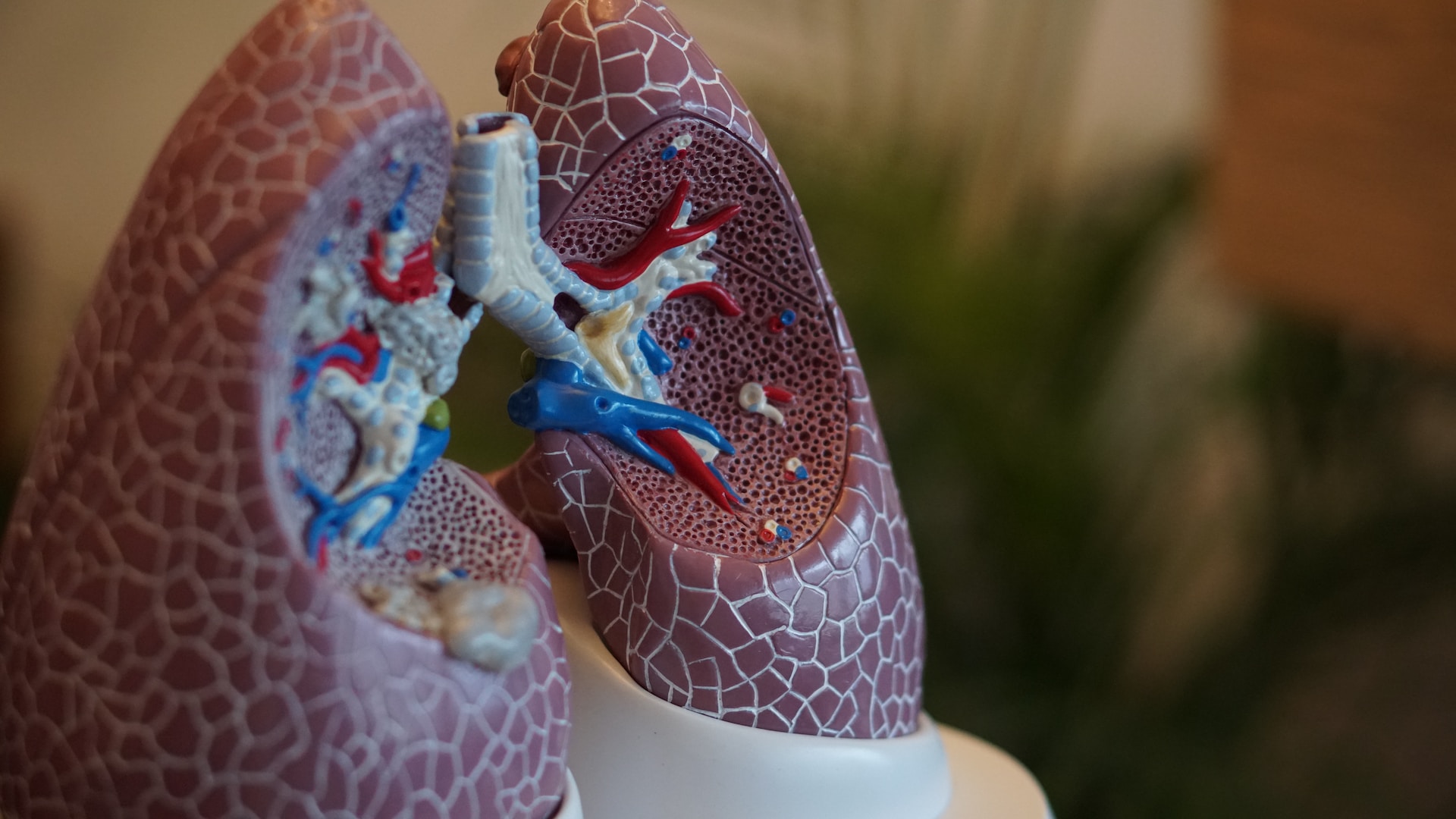Acute exacerbation is a term that describes a sudden worsening of symptoms in a chronic condition. It can happen in various diseases, such as asthma, chronic obstructive pulmonary disease (COPD), and idiopathic pulmonary fibrosis (IPF). Acute exacerbations can be triggered by different factors, such as infections, allergens, pollution, or weather changes. They can cause serious complications, such as respiratory failure, hospitalization, or death. Therefore, it is important to recognize the signs of acute exacerbation and seek medical attention as soon as possible.
In this article, we will explain what acute exacerbation is and how it affects different chronic lung diseases. We will also provide some tips on how to prevent and treat acute exacerbations.
What is Acute Exacerbation?
Acute exacerbation is a term that describes a sudden worsening of symptoms in a chronic condition. It can happen in various diseases, such as asthma, COPD, and IPF. Acute exacerbations can be triggered by different factors, such as infections, allergens, pollution, or weather changes.
Acute exacerbations can cause a decline in lung function and oxygen levels in the blood. They can also lead to inflammation and damage in the lungs. Acute exacerbations can cause serious complications, such as respiratory failure, hospitalization, or death.
How Does Acute Exacerbation Affect Different Chronic Lung Diseases?
Acute exacerbation can affect different chronic lung diseases in different ways. Here are some examples of how acute exacerbation affects asthma, COPD, and IPF.
Asthma
Asthma is a chronic inflammatory disease of the airways that causes wheezing, coughing, chest tightness, and shortness of breath. Asthma can be controlled with medications and environmental measures, but sometimes it can flare up and cause an acute exacerbation. An acute exacerbation of asthma is also called an asthma attack or a flare-up.
Some of the symptoms of an acute exacerbation of asthma are:
- Increased frequency and severity of wheezing, coughing, chest tightness, and shortness of breath
- Difficulty speaking or sleeping
- Reduced peak expiratory flow (PEF) or forced expiratory volume in one second (FEV1)
- Low oxygen saturation
- Anxiety or panic
Some of the common triggers of an acute exacerbation of asthma are:
- Upper respiratory infections, such as colds or flu
- Allergens, such as pollen, mold, dust mites, animal dander, or cockroaches
- Tobacco smoke or air pollution
- Cold or dry air
- Exercise or physical activity
- Emotional stress
- Certain medications, such as aspirin or beta-blockers
The treatment of an acute exacerbation of asthma aims to relieve symptoms and restore lung function. The main treatment options are:
- Inhaled bronchodilators, such as albuterol or salbutamol, to relax the muscles around the airways and improve airflow
- Systemic corticosteroids, such as prednisone or methylprednisolone, to reduce inflammation and swelling in the airways
- Oxygen therapy, to increase the oxygen level in the blood
- Ventilatory assistance, such as noninvasive ventilation (NIV) or intubation and mechanical ventilation, to help with breathing in severe cases
The prevention of an acute exacerbation of asthma involves avoiding triggers, taking medications as prescribed, monitoring symptoms and lung function, and having an action plan in case of a flare-up.
COPD
COPD is a group of chronic lung diseases that cause airflow obstruction and difficulty breathing. The most common types of COPD are chronic bronchitis and emphysema. COPD can be caused by smoking, exposure to pollutants or dust, genetic factors, or aging. COPD can be managed with medications, lifestyle changes, pulmonary rehabilitation, and oxygen therapy. However, COPD can also worsen suddenly and cause an acute exacerbation.
Some of the symptoms of an acute exacerbation of COPD are:
- Increased breathlessness and wheezing
- Increased cough and sputum production
- Change in sputum color from clear to yellow, green, or brown
- Fever or chills
- Fatigue or weakness
- Headache or confusion
- Low oxygen saturation
Some of the common causes of an acute exacerbation of COPD are:
- Lung or upper airway infection, such as viral or bacterial pneumonia
- Allergens or irritants, such as smoke, dust, fumes, or chemicals
- Weather changes, such as cold or humid air
- Medication noncompliance or adverse effects
The treatment of an acute exacerbation of COPD aims to improve oxygenation and blood pH, reverse airflow obstruction, and treat the underlying cause. The main treatment options are:
- Oxygen supplementation, to increase the oxygen level in the blood and prevent hypoxia
- Bronchodilators, such as albuterol or ipratropium bromide, to relax the muscles around the airways and improve airflow
- Corticosteroids, such as prednisone or methylprednisolone, to reduce inflammation and swelling in the airways
- Antibiotics, to treat bacterial infections that may cause or worsen the exacerbation
- Ventilatory assistance, such as NIV or intubation and mechanical ventilation, to help with breathing in severe cases
The prevention of an acute exacerbation of COPD involves quitting smoking, avoiding pollutants or irritants, taking medications as prescribed, getting vaccinated against influenza and pneumococcal disease, and having regular follow-up visits with a health care provider.
IPF
IPF is a rare and progressive lung disease that causes scarring and stiffening of the lung tissue. The cause of IPF is unknown, but it may be related to genetic factors, environmental exposure, or immune system dysfunction. IPF can cause symptoms such as dry cough, shortness of breath, fatigue, weight loss, and clubbing of the fingers. IPF has no cure, but treatments such as antifibrotic drugs, lung transplantation, or palliative care can slow down the disease progression and improve quality of life. However, IPF can also worsen rapidly and cause an acute exacerbation.
Some of the symptoms of an acute exacerbation of IPF are:
- Sudden and severe worsening of breathlessness and cough
- Fever or chills
- Chest pain or discomfort
- Low oxygen saturation
- Respiratory failure
Some of the possible triggers of an acute exacerbation of IPF are:
- Lung or upper airway infection, such as viral or bacterial pneumonia
- Gastroesophageal reflux disease (GERD) or swallowing dysfunction, which can cause aspiration of stomach contents into the lungs
- Air pollution or dust exposure
- Lung injury or surgery
The treatment of an acute exacerbation of IPF aims to support oxygenation and ventilation, treat the underlying cause, and prevent further lung damage. The main treatment options are:
- Oxygen therapy, to increase the oxygen level in the blood and prevent hypoxia
- Corticosteroids, such as methylprednisolone, to reduce inflammation and swelling in the lungs
- Antibiotics, to treat bacterial infections that may cause or worsen the exacerbation
- Antivirals, to treat viral infections that may cause or worsen the exacerbation
- Ventilatory assistance, such as NIV or intubation and mechanical ventilation, to help with breathing in severe cases
The prevention of an acute exacerbation of IPF involves avoiding infections, reflux, or irritants, taking antifibrotic drugs as prescribed, monitoring symptoms and lung function, and having regular follow-up visits with a health care provider.
How to Recognize the Signs of Acute Exacerbation
It can be a life-threatening complication that requires immediate medical attention. Therefore, it is important to recognize the signs of acute exacerbation and seek help as soon as possible. Some of the signs of acute exacerbation are:
- A sudden and severe worsening of your usual symptoms, such as breathlessness, cough, wheezing, or chest tightness
- A change in the color or amount of your sputum, especially if it becomes yellow, green, or brown
- A fever or chills
- A chest pain or discomfort
- A difficulty speaking or sleeping
- A low oxygen saturation level, which can be measured by a pulse oximeter
- A headache or confusion
- A respiratory failure, which can cause bluish skin, lips, or nails; rapid breathing; or loss of consciousness
If you experience any of these signs, you should call your doctor or 911 immediately. You should also follow your action plan if you have one. An action plan is a written document that tells you what to do in case of an acute exacerbation. It may include instructions on how to use your rescue inhaler, when to take your medications, and who to contact for help.
How to Prevent Acute Exacerbations
It can be prevented by taking good care of your chronic lung disease and avoiding triggers that can worsen your condition. Some of the prevention strategies are:
- Quitting smoking and avoiding secondhand smoke
- Avoiding allergens or irritants that can cause an allergic reaction or inflammation in your lungs, such as pollen, mold, dust mites, animal dander, cockroaches, smoke, dust, fumes, or chemicals
- Getting vaccinated against influenza and pneumococcal disease, which can cause serious lung infections
- Taking your medications as prescribed by your doctor and using your inhalers correctly
- Monitoring your symptoms and lung function regularly and reporting any changes to your doctor
- Having regular follow-up visits with your health care provider and following their recommendations
- Participating in pulmonary rehabilitation programs that can help you improve your breathing, exercise capacity, and quality of life
- Using oxygen therapy if prescribed by your doctor and following the safety guidelines
- Managing other conditions that can affect your lungs, such as GERD or swallowing dysfunction
- Eating a healthy diet and staying hydrated
- Managing your stress and emotions
- Seeking support from your family, friends, or support groups
Conclusion
It is a serious complication that can occur in various chronic lung diseases, such as asthma, COPD, and IPF. It can cause a sudden worsening of symptoms and a decline in lung function. It can also lead to hospitalization or death. Therefore, it is important to recognize the signs of acute exacerbation and seek medical attention as soon as possible. Treatment options vary depending on the type and severity of the exacerbation, but they usually involve oxygen therapy, bronchodilators, corticosteroids, antibiotics, and sometimes ventilatory assistance. Prevention strategies include avoiding triggers, taking medications as prescribed, getting vaccinated, and having regular follow-up visits with a health care provider.
We hope this article has helped you understand what acute exacerbation is and how it affects different chronic lung diseases. If you have any questions or comments, please feel free to share them below. Thank you for reading.





